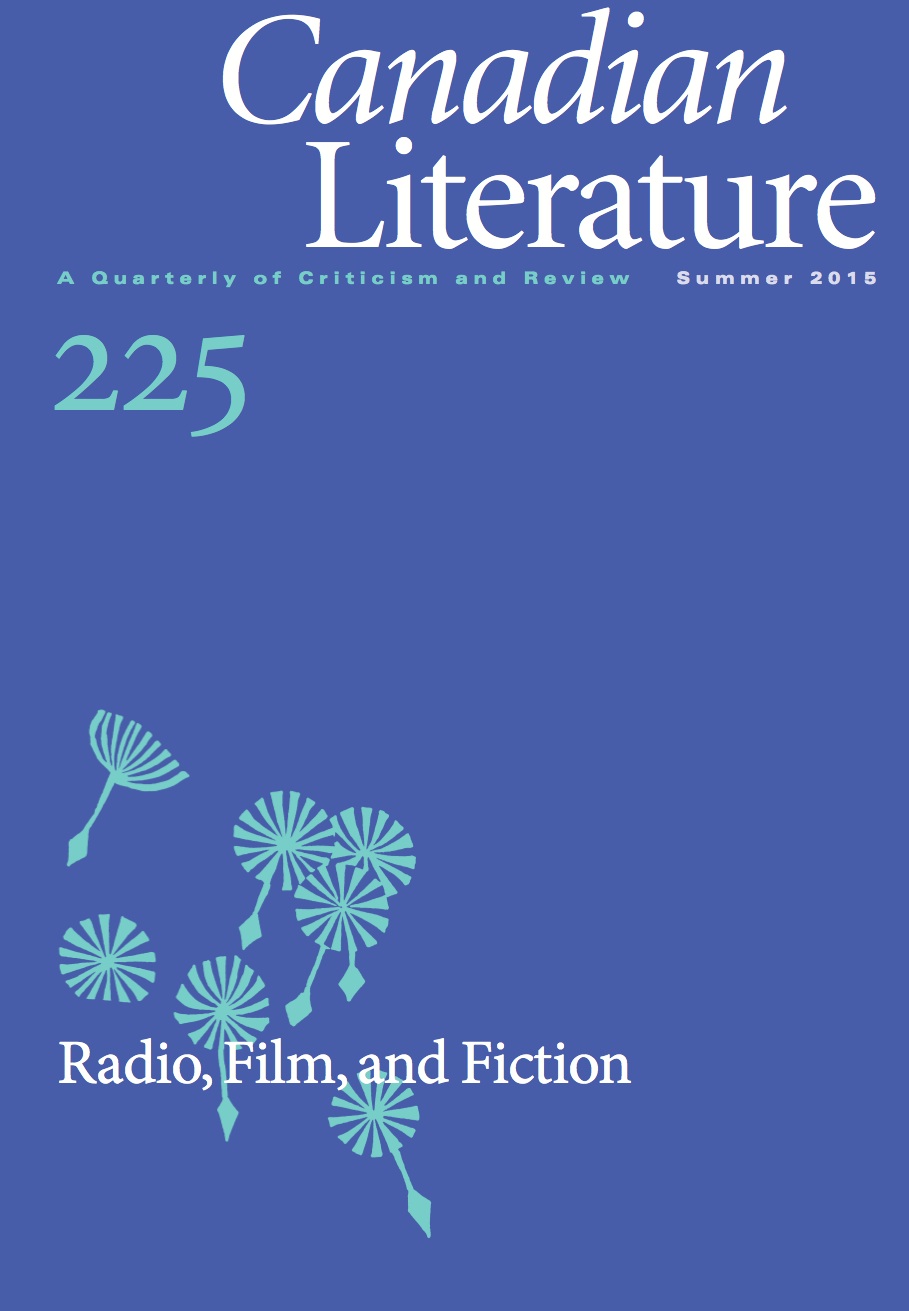The Sounds of North: Political Efficacy and the “Listening Self” in Elizabeth Hay’s Late Nights on Air
DOI:
https://doi.org/10.14288/cl.v0i225.186540Abstract
In a historical moment where sound and aural senses are elided, either as a result of technological advancement or as noise pollution, Elizabeth Hay’s novel Late Nights on Air mounts a defense of sound and listening by foregrounding alternative discourses from the period that derive from the Canadian North. Specifically, by alluding to Glenn Gould’s method of contrapuntal listening and the explorer John Hornby, whom John Moss in 1971 aligned with the “greatest Arctic narrative [of] silence” (56), the novel configures sound and listening as efficacious, both in terms of political engagement and identity formation. Ultimately, in Late Nights on Air sound and, by extension, aural sensory engagement within a specifically Canadian northern tradition disallows a reductive understanding of Canada’s sonic environment in the late twentieth century as technologically obsolete or as ecologically threatening by revealing its value as a political and identity-forming tool.


